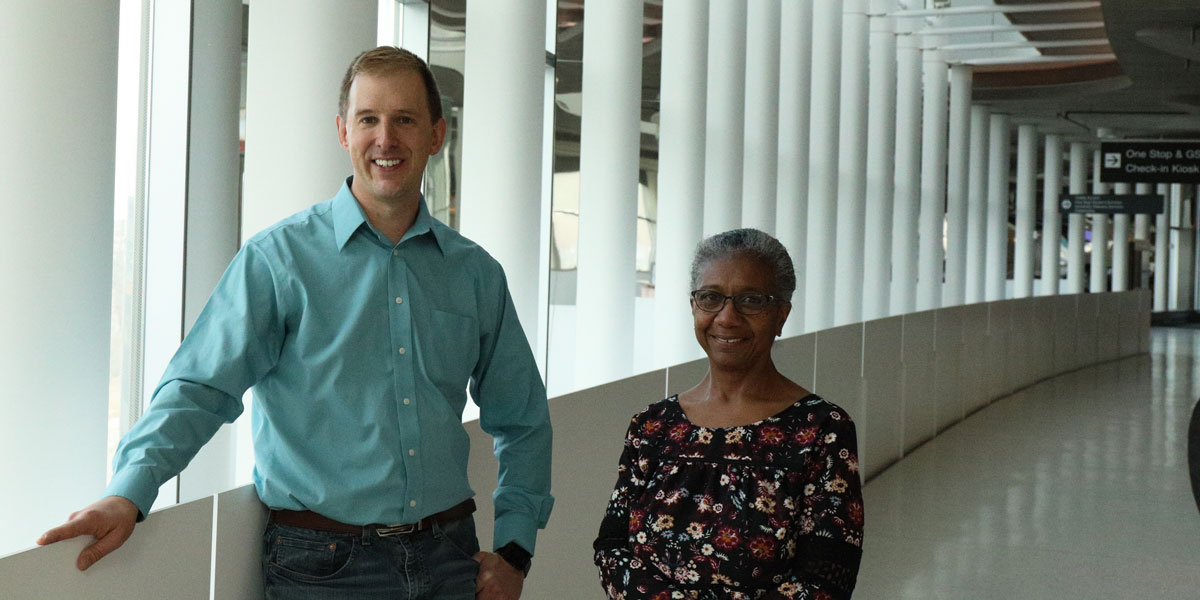
It’s easy for students to get a bit lost in a course like General Biology. Whether in person or online, staying on top of assignments and meeting deadlines for the four-credit course isn’t easy. For some students asking for help doesn’t come naturally. This is especially true among underrepresented minority, transfer and first-generation student populations, which historically have had higher drop/fail/withdrawal rates than majority, non-transfer, and continuing-generation students. Biology 1009, a course open to students across the University, is no exception.
With support from a CBS DEIJ microgrant, Cheryl Scott, a teaching assistant professor, and Brian Gibbens, a teaching associate professor in the Department of Biology Teaching and Learning, are working to break down those barriers. Learning assistants Anna Cruz, Anna Janzen, and Tracy Vu each support one of three sections of Biology 1009 this fall, Scott and Gibbens hope to reach those hard-to-reach students. Learning assistants offer support in a variety of ways from offering help with content and study strategies, sending reminders, and contacting individual students to provide guidance
“Instructors often don't have the time required to closely monitor the performance of every student and to contact students who have missing assignments or who are exhibiting performance declines,” says Gibbens. Even if instructors could do so, it might feel intimidating for students. Since learning assistants are peers, the hope is that students experience less trepidation in touching base.
It’s too early to tell what kind of impact the learning assistants are having, but anecdotal evidence suggests that some students are responding to the peer-based approach. Early feedback suggests students appreciate the extra outreach and timely reminders. One student said: “Anna [Cruz] is very good with reminding everyone with upcoming assignments and homework. She keeps me updated that I sometimes feel that she reads my mind. I have not asked Anna for any advice or anything but that’s because she keeps you updated that you don't even have to ask. She is the best!”
“We want students that are struggling to feel like they have a resource and are comfortable using it,” says Scott. She notes that there are many reasons students don’t speak up, from previous bad experiences to just a lack of awareness that asking questions is okay. “We want to create an environment in which students think ‘I'm supposed to ask questions’,” she says.
—Stephanie Xenos